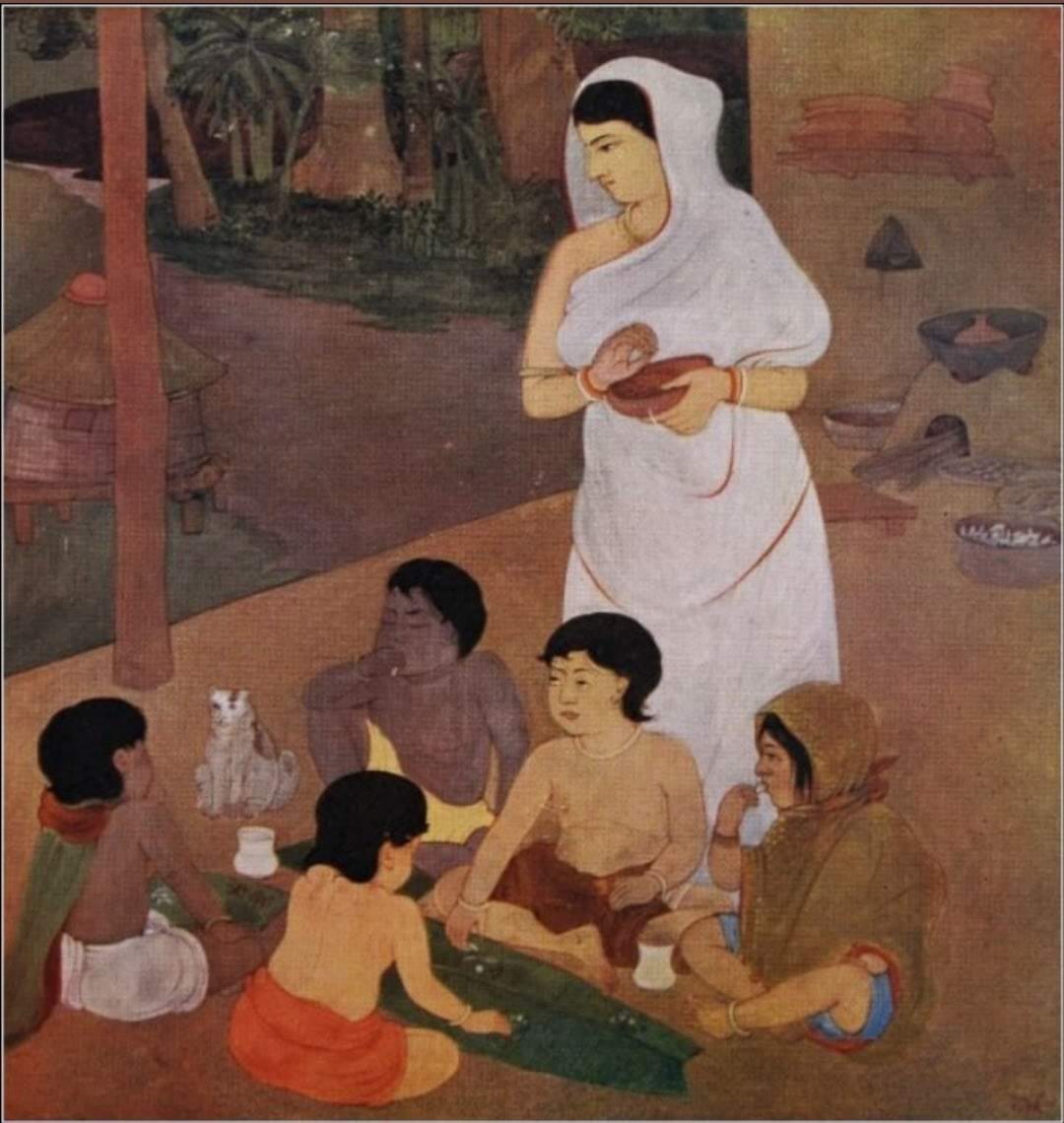Mātājī: My husband died, but I have 2 grown-up daughters and I don’t feel like I should be taking vānaprastha, but I would like to understand what’s my duty and behavior towards my family and myself as a woman, how should I behave and what are the rules in that kind-of a situation?
HH BVPS Mahārāja: Technically speaking, if the husband is not there, you don’t have to take vānaprastha, you are vānaprastha. Do you understand? Vānaprastha for a woman doesn’t mean she has to not be in the family environment. For a woman vānaprastha means that she go with the husband and they are not with the family, or does she stay at home with the family. Vānaprastha means, she is not having more kids, she is not… You know what I am saying? She is not still trying to develop, expand her accessoires and facilities. She just maintains her own. The family, the children and that, they may be expanding, or you are helping them to expand, but it’s not your field that you are expanding. Does that make sense? You know, like that, so that’s vānaprastha. Vānaprastha means, you are not trying to expand the gṛhastha life. After so many years of experience what comfortably works, you maintain it at that and don’t take it beyond. Because when one is younger, then one is trying to figure out, “Do I need ten bags, or do I need five bags?” or, “Do I need 10 sarees, or do I need 30, or do I need 5,000, how many do I need?” [Laughter] You know what I am saying? So that’s the point, so in other words, when they are younger they are trying this, they are trying that, they are trying out everything until eventually you figure out what actually works and then you just maintain that and don’t bother any more. It’s comfortable, it works, that’s it, you are not trying to get more, this that. So you know what standard of living works for you, you just keep it there, don’t go beyond. You can take your daughters beyond that, but you don’t take yourself beyond that. And the emphasis will be them now, not you. When you are younger, the emphasis is you, and they are your children. You know what I am saying? But now the emphasis is them, not you, their lives, not your life and your life includes them. You see the difference? See the difference? Right? Yeah, so that’s the point that will make the difference, in other words, it’s their life and how can you help them develop their life, rather than you are taking care of them because they are your life. Do you understand? The mother takes care of the kid, because it’s her life, “It’s my kid.” So they are doing things for the kid, but that’s because they are your kid. So what works for me, I apply on them. But now you reverse it, what works for them, that’s what you help them do. Of course, you have experience, so you can help them figure out what they need quicker than they’ll figure it out. But you give it to them at the speed that they can accept it. Does that make some sense? In other words, the role reverses, you are the one moving at their speed rather than they are moving at your speed. You know what I am saying?
Mātājī: Yeah. So my daughters have been attracted or accepted spiritual life to some degree, because I’ve been speaking to them, but their husbands are materialists and it’s very difficult for me to adjust to this situation, and I feel that the only way I can try to help them is spiritual. I don’t have any means to help them financially, and maybe their mother-in-laws and grandparents can help them materially, but I cannot, I can only help spiritually.
HH BVPS Mahārāja: Yeah, that’s all you have to do. You are not expected to do more than that. They are married, it’s their husbands’ responsibility. Means, your responsibility in that department ended the day they said “I do,” right?


Comments